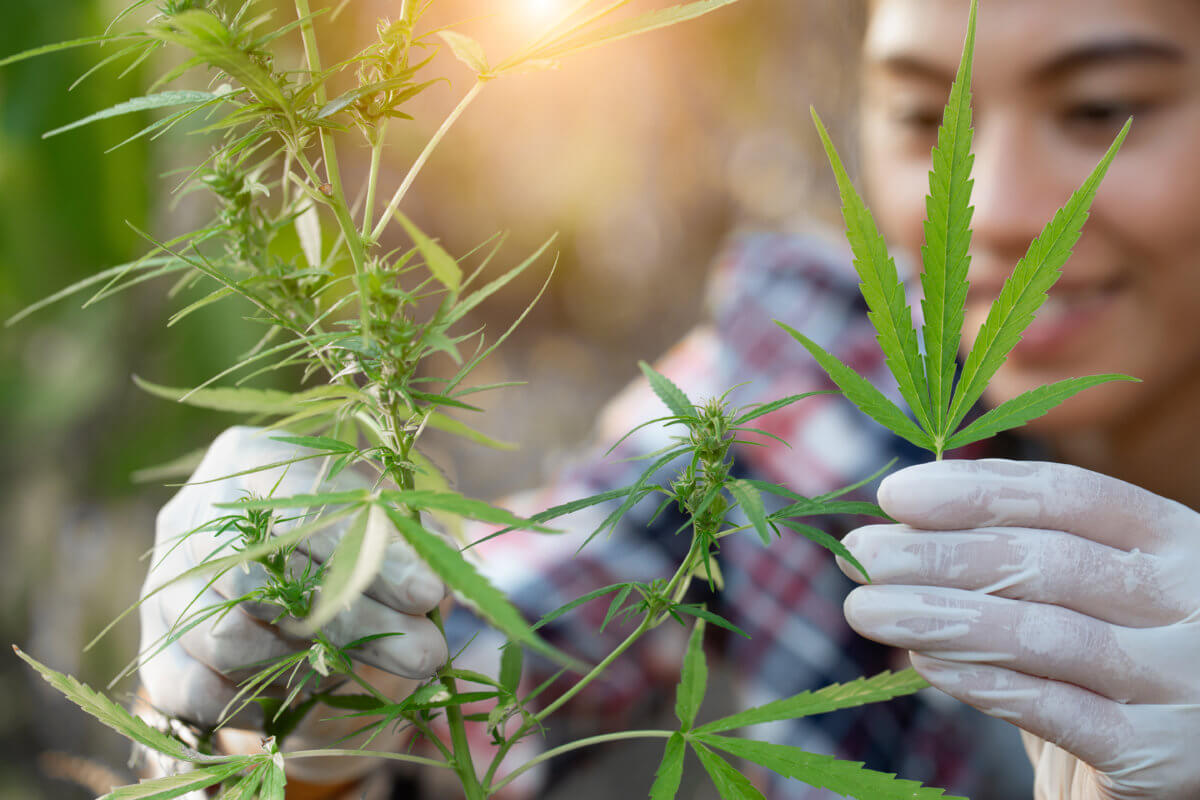by Steve Ardagh, Eagle Protect CEO
“My gloves keep ripping” is a common frustration we hear from cannabis businesses, especially growers and processors. If your gloves are ripping just buy thicker gloves, right? Maybe. It is a common misperception that thicker gloves are stronger, but this is not always the case. Here are four factors about glove thickness to understand that will help solve this chronic glove problem.
4 Things to consider before buying a thicker glove
- Thicker does not mean stronger – A glove’s strength is directly related to the quality of materials used to make it. Period. A glove’s raw material ingredients account for 45% of the production cost. Gloves can have fillers, like carbon black, silica and chalk, added to manufacture them cheaper. Chalk doesn’t stretch. When fillers are added to reduce production costs, the glove’s durability and elasticity will reduce as well.
In one minute, this video shows how to estimate the quality of your nitrile gloves. When buying disposable gloves, always remember, a gloves’ strength is directly proportional to the quality of ingredients used to make it.
- Musculoskeletal issues – Low-quality, thicker gloves have less elasticity which in turn makes workers’ hands use stronger muscle force, increasing the chance of injury. For example, a worker’s hand could have unnecessary force put on it with every hand movement they make while bucking or trimming the plant. A disposable glove needs to be of a high enough quality to perform the task and protect the product and the wearer, but excessive thickness can create additional issues. A better-made glove can be thinner while outperforming cheaper, thicker gloves.
- Worker efficiency – Despite its thickness, a glove made with lower quality ingredients will rip more frequently. When your staff is constantly having to stop working to change failed gloves, productivity decreases. When workers are busy changing failed gloves they are no longer planting, growing, harvesting, trimming, or curing. Gloves that perform will increase overall productivity and efficiency, not to mention worker satisfaction.
- Increased waste – Another possibly less considered consequence of buying thicker gloves is the environmental impact. Glove thickness directly correlates with the amount of waste, disposal costs, and environmental impact generated. A thicker glove equates to more material per glove being disposed of. A glove made of cheap ingredients that fails more frequently will also negatively affect a businesses’ sustainability efforts by increasing the overall quantity of gloves used. Generating more waste will in turn increase disposal costs and the amount of waste that ultimately is put into landfills.
Cannabis plants can be prickly, sticky, and sometimes relatively tough on disposable gloves. A better glove is needed. A better glove, not necessarily a thicker glove. Additionally, different stages in producing cannabis products, from growing to harvesting to processing to tinctures to edibles, can require different gloves. A single glove most likely will not live up to the performance and safety requirements at the various stages. The best way to know you’re buying a quality glove is to purchase from reputable suppliers with specific and ongoing quality control procedures in place. This ensures glove quality, performance and protection, all of which directly mitigate risk to your product and business.
Trustworthy and knowledgeable glove suppliers will be able to help arrange glove trials through which you will be able to determine the best glove to use for every task. Purchasing too heavy of a glove for a task increases costs unnecessarily. Investing the time into ensuring you are sourcing the correct gloves will protect your product, workers and budget.
Disposable gloves are not indestructible. Some tasks, like harvesting and trimming, do require a thicker glove even when they are made of the highest quality. But simply put, a thicker glove spec is not always the answer to a sticky situation.
 Eagle Protect, the world’s only glove and PPE supplier to be a Certified B Corporation®. Eagle Protect supplies disposable gloves and protective clothing to the food processing, food service, cannabis, medical and dentistry sectors in both the U.S. and New Zealand.
Eagle Protect, the world’s only glove and PPE supplier to be a Certified B Corporation®. Eagle Protect supplies disposable gloves and protective clothing to the food processing, food service, cannabis, medical and dentistry sectors in both the U.S. and New Zealand.
Eagle is implementing Delta Zero, a proprietary third-party glove analysis program to ensure a range of their gloves are of consistent high-quality, and free from harmful contaminants, toxins and pathogens. The Delta Zero program mitigates the risk of product contamination and recall due to the unknown use of dirty gloves.
After establishing Eagle Protect as an industry leader in New Zealand, where the company supplies approximately 80% of the primary food processing industry, Steve Ardagh relocated with his family to the U.S. in January 2016 and launched Eagle Protect PBC. Steve brought with him Eagle’s values of providing products that are certified food safe, ethically sourced and environmentally better. Steve is driven to keep consumers safe, one high-quality disposable glove at a time, and has been instrumental in developing Eagle’s proprietary third-party Delta Zero program glove testing program.


Follow NCIA
Newsletter
Facebook
Twitter
LinkedIn
Instagram
–